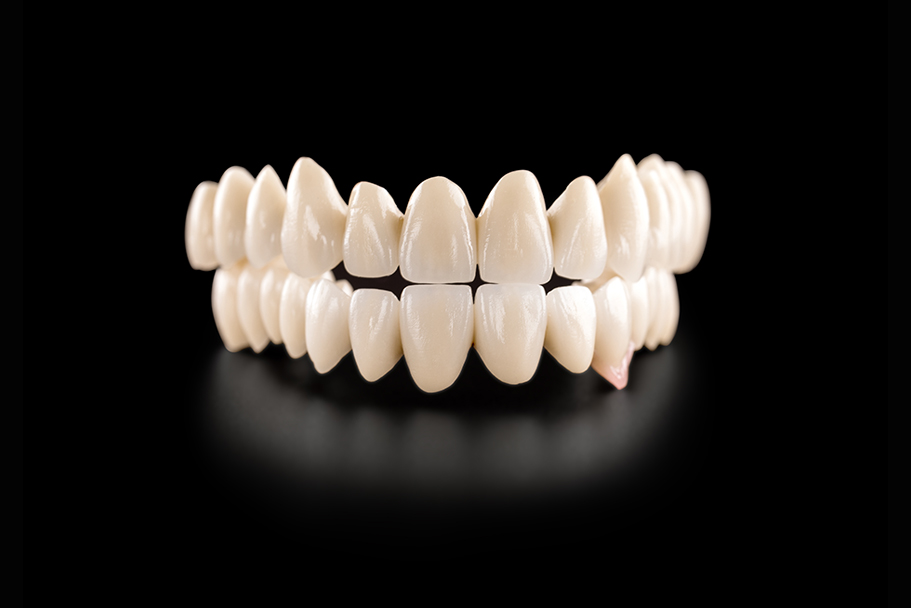FULL MOUTH REHABILITATION
Full mouth rehabilitation, often referred to as full mouth reconstruction or rehabilitation dentistry, is a transformative branch of dental care that aims to restore both the function and aesthetics of a patient's entire mouth. This comprehensive approach addresses a wide array of dental issues, including damaged, missing, or misaligned teeth, as well as issues with the jaw and bite. Our team of skilled dental professionals meticulously plan and execute these procedures, customizing treatment plans to suit each patient's unique needs and goals. Through a combination of restorative, cosmetic, and orthodontic techniques, full mouth rehabilitation can offer patients a second chance at a healthy, beautiful smile, and improved oral function. Join us at GIA clinics to experience the world of full mouth rehabilitation, where dental science and artistry converge to rejuvenate smiles and enhance overall quality of life.

- Comprehensive Evaluation:The process begins with a thorough examination of the entire oral cavity. This includes a detailed assessment of the teeth, gums, jaw joints (TMJ), bite, and overall oral health.
- Diagnostic Imaging:X-rays, 3D scans, and other imaging techniques may be used to provide a detailed view of the teeth, bones, and soft tissues, helping the dentist plan the treatment accurately.
- Treatment Planning:Based on the evaluation and imaging, a customized treatment plan is developed. This plan outlines the specific procedures needed to address individual dental concerns.
- Dental Fillings and Restorations:Repairing and restoring decayed or damaged teeth with fillings, crowns, inlays, or onlays.
- Periodontal Treatment:Scaling, root planing, and other procedures to address gum disease.
- Orthodontic Treatment:Straightening misaligned teeth and correcting bite issues through braces or aligners.
- Dental Implants:Placement of artificial tooth roots to support crowns, bridges, or dentures.
- Dental Bridges:Replacement of missing teeth by anchoring artificial teeth to adjacent natural teeth or implants.
- Dentures:Full or partial removable prosthetic devices to replace missing teeth. TMJ Treatment: Addressing issues with the temporomandibular joint that may be causing pain or dysfunction.
- Cosmetic Procedures (if desired):Cosmetic dentistry procedures such as teeth whitening, veneers, and gum contouring may be included to enhance the appearance of the smile.
- Bite Alignment (Occlusal Adjustment):Ensuring proper alignment of the bite to prevent issues like jaw pain, headaches, and premature wear on teeth.
- Provisional Restorations:Temporary crowns, bridges, or other restorations may be placed to protect the prepared teeth while the final restorations are being fabricated.
- Final Restorations:Once the preliminary steps are completed, final restorations like crowns, bridges, implants, and prosthetics are fabricated and permanently placed.
- Follow-Up and Maintenance:Regular follow-up appointments are crucial to monitor the success of the rehabilitation and address any issues that may arise. Maintaining good oral hygiene and attending routine check-ups is essential for long-term oral health.
- Patient Education:The patient is educated on proper oral hygiene practices, diet, and habits to ensure the longevity of the dental work.
Addressing Dental Issues:
The actual procedures involved in full mouth rehabilitation can vary widely depending on the specific needs of the patient. They may include:
Tooth Extractions: Removal of severely damaged or non-restorable teeth.
Full mouth rehabilitation is a complex and highly individualized process that requires the expertise of skilled dental professionals. It aims to improve both the function and appearance of the mouth, ultimately enhancing the patient's overall quality of life.
